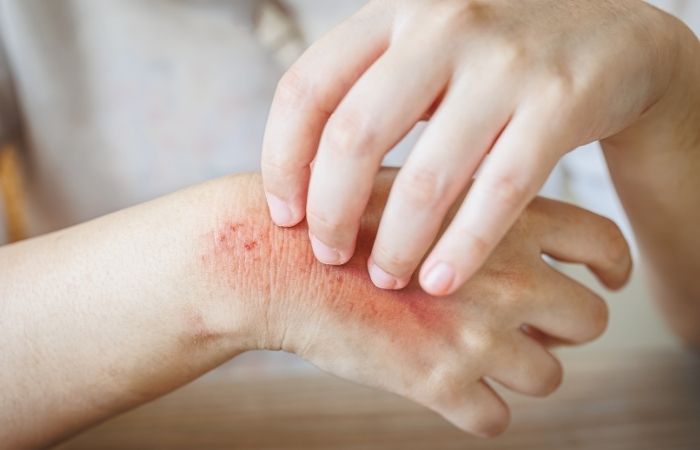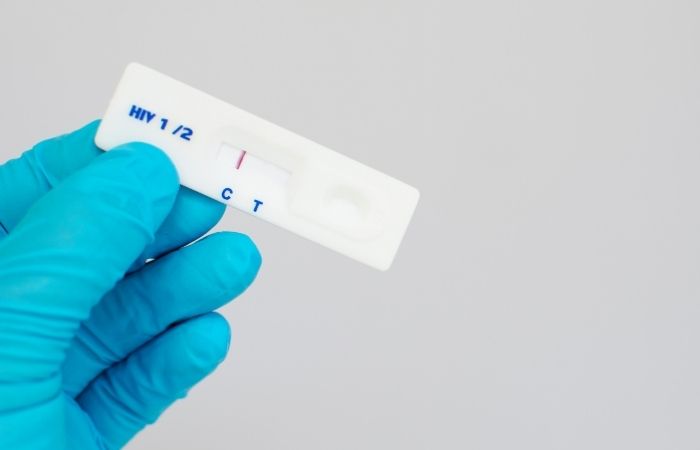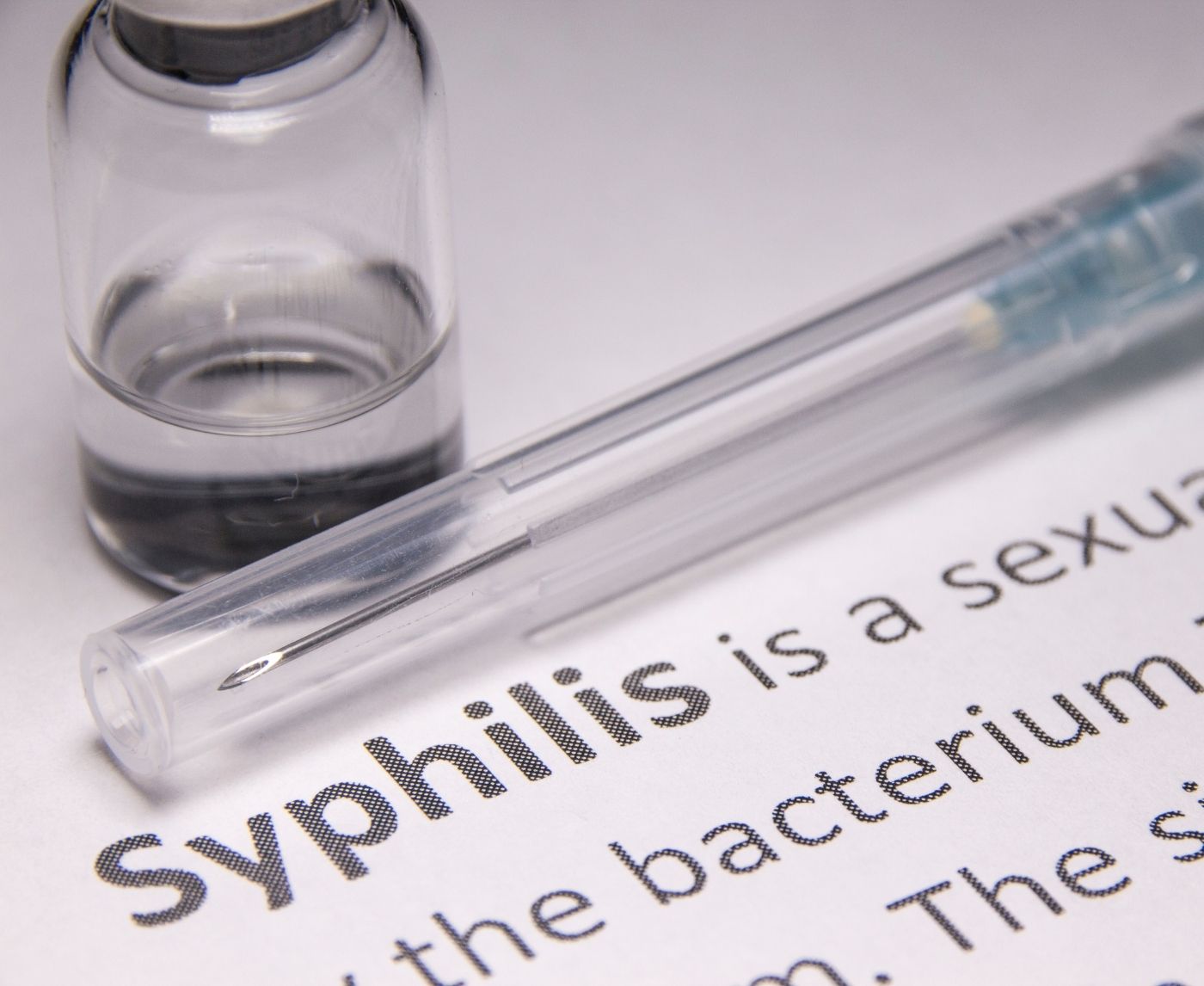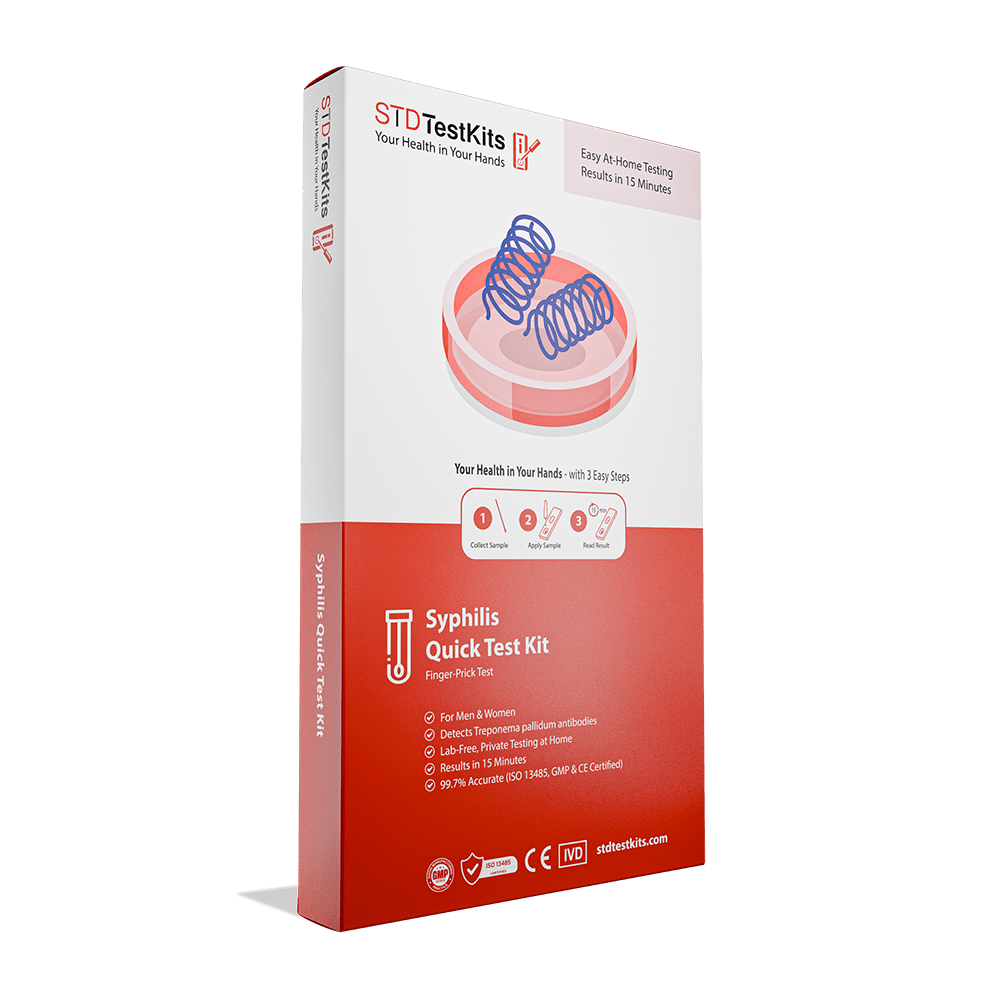The Hidden History of HIV Testing in the U.S., From Fear to Fingerpricks
Quick Answer: In 2025, syphilis is rising faster than HIV in Florida, with over 15,000 reported cases statewide, surpassing new HIV diagnoses. But HIV remains more prevalent overall. Both require fast, discreet testing to prevent long-term harm.
Who This Article Is For (And Why You Shouldn’t Skip This)
This isn’t just for people who are "high risk." It’s for anyone who’s had sex in the past year, casual, long-term, protected, or not. If you live in Florida, especially in areas like Miami-Dade, Broward, or Duval County, you’re already in one of the nation’s STD hotspots. And if you're queer, trans, Black, Latinx, or just nervous about testing, this was written with you in mind.
Maybe you’ve had a one-time hookup and now you’re overthinking a skin bump. Or maybe you’ve tested for HIV but not syphilis. Maybe you thought syphilis was some "old-timey" disease that disappeared decades ago. Spoiler: It didn’t. This article breaks down the facts and gives you next steps, without judgment, without fearmongering.

People are also reading: Can You Still Have Sex If You Have Chlamydia?
Florida STD Statistics: The 2025 Reality
Let’s get real about the numbers. According to the CDC and the Florida Department of Health, STD rates in the state have reached record highs in 2025. Syphilis, in particular, has exploded, especially among men who have sex with men, but also in heterosexual populations, pregnant people, and teens.
Here’s how HIV and syphilis stack up right now across the state:
Figure 1.Comparative data from 2025 that shows syphilis cases are now outpacing HIV diagnoses in Florida, even though HIV remains a huge public health concern.
The rise in syphilis cases isn’t just numbers, it’s people. Many don't know they’re infected. Others mistake it for a UTI, ingrown hair, or allergy rash. The overlap in symptoms between HIV and syphilis makes this even more confusing, which is exactly why testing matters.
What They Look Like: Symptoms You Might Miss or Misread
If you're waiting for a burning sensation or obvious rash to tell you something's wrong, you might miss both HIV and syphilis entirely. Early-stage symptoms can be subtle, confusing, or feel like nothing at all. Especially in the first 2–6 weeks after exposure, both infections can mimic things like flu, allergies, razor burn, or a yeast infection.
Let’s break this down with real scenarios:
Rico, 28, from Tampa, noticed a single sore on the shaft of his penis. “It didn’t hurt, so I thought maybe it was a zit or from friction. It went away in a week. No discharge, no fever.” A month later, his doctor diagnosed him with primary syphilis.
Danielle, 33, from Orlando, never saw a sore but experienced what she thought was a flu: low fever, fatigue, night sweats. “I took COVID tests and they were negative, so I figured it was just a bug.” It wasn’t. Her partner later tested positive for HIV.
Neither of them had what people assume are “classic” STD symptoms. That’s because those don’t always show up, or if they do, they don’t look how you expect.
Figure 2. Comparing symptoms of HIV and syphilis, note the overlap and how non-specific some signs are. Testing is the only way to tell.
What makes syphilis particularly dangerous is how easily it disappears. That painless sore? It often goes away in 1–2 weeks, without treatment. The second stage rash? Fades on its own. But the bacteria doesn’t go away. It just hides deeper, setting the stage for long-term damage to your brain, heart, and organs if left untreated.
HIV can also feel like it “resolves” after the acute phase. Many people feel fine after their initial flu-like illness, but the virus continues silently attacking the immune system unless managed with medication.
The Myths That Keep People From Testing
If you’re Googling “can you get HIV from oral sex” or “STD with no discharge,” you’re not alone. Florida health workers say misinformation and fear still block people from testing, especially men who have sex with men, younger folks, and people in immigrant communities.
Here are a few dangerous myths that still circulate:
- Myth: “I’m straight, so I don’t need to test for HIV.” → False. In 2025, over 30% of new HIV cases in Florida were among heterosexual individuals.
- Myth: “If I had syphilis, I’d see a sore.” → Not always. Sores can be internal or go unnoticed.
- Myth: “Oral sex is safe and can’t transmit anything.” → Wrong. Both HIV and syphilis can be transmitted through oral sex, especially if there are cuts, dental work, or active sores involved.
- Myth: “If my rapid HIV test is negative, I’m good.” → Depends on timing. If you tested within the window period, you might need a follow-up.
The reality? Most people who test positive had no idea they were at risk. That’s not about recklessness. It’s about mixed messages, shame, and a healthcare system that often makes people feel judged just for showing up.
But here's the truth Florida clinics wish more people knew: Testing is care. It’s not a confession. It’s not a punishment.
Where to Get Tested in Florida (Without the Shame Spiral)
You don’t need a white coat or a clinic waiting room to take care of yourself. Florida offers multiple paths to get tested for HIV and syphilis, and many of them don’t involve talking to a single person.
If privacy, time, or anxiety are barriers for you, here’s what you should know:
- At-home rapid tests: FDA-approved for HIV and other common STDs. Results in minutes. No clinic, no questions.
- Mail-in lab kits: You collect your sample at home, then send it to a certified lab. Slight delay in results but higher sensitivity for early-stage infections.
- Free public clinics: Health departments in counties like Miami-Dade, Orange, and Hillsborough offer free or low-cost testing, no insurance needed.
Whatever method you choose, what matters is this: You test on time. Because testing too early, especially for HIV, can give you a false sense of security.

People are also reading: When the STD Test Says “Negative” But Your Body Says “Something’s Wrong”
When to Test: Timing Matters More Than You Think
Testing isn’t just about doing it. It’s about doing it when the result can actually be trusted. Both HIV and syphilis have something called a window period, the time between exposure and when the infection shows up on a test.
Here’s a simple breakdown:
Figure 3. Window periods by infection. Testing too early may give a false negative, even if you’re infected.
Case Example: Mateo, 24, had unprotected sex at a music festival and panicked five days later. “I rushed to a CVS for a rapid HIV test. It was negative, but I couldn’t sleep.” He retested six weeks later with a mail-in kit and learned he was positive for syphilis, but still HIV-negative. “I thought the first test was all I needed. I didn’t know about the window period.”
Takeaway: Testing isn’t a one-and-done event. It’s a process, and repeating it at the right time is how you actually get peace of mind.
Don’t Wait Until You’re Sure, Test When You’re Not
Still deciding whether to test? Still thinking, “It’s probably nothing”? That feeling won’t go away on its own. And here’s the good news, you don’t have to go through it alone, and you don’t have to walk into a clinic to get answers.
This FDA-approved combo test kit checks for multiple STDs, HIV, syphilis, chlamydia, and more, all from home. It’s private, fast, and doctor-trusted.
Don’t wait and wonder. You deserve clarity, and you can get it today.
The Most Dangerous STD Is the One You Don’t Test For
Whether it’s HIV or syphilis, what makes them dangerous isn’t just the infection, it’s the delay in knowing. Florida’s rising STD rates aren’t about carelessness. They’re about fear, confusion, and a system that still makes testing feel like a punishment.
If you’ve had sex and haven’t tested in a while, or ever, start now. You don’t need symptoms. You don’t need a partner’s permission. You don’t need to explain.
You just need to know.
FAQs
1. Can I have HIV or syphilis and feel totally fine?
Oh, absolutely. That’s the real danger. Both infections can hide out quietly for weeks, or even years. No burning, no rash, no dramatic breakdown. Just life going on… until it doesn’t. That’s why testing matters even when you “feel fine.”
2. When should I test if I think I was exposed last weekend?
For syphilis, you’ll want to wait at least 3 weeks to catch it accurately. For HIV, the sweet spot is 3–12 weeks after exposure. Testing early is okay, but you’ll probably need a follow-up later to be sure. Think of it like checking the oven twice, you’re just making sure it’s fully cooked.
3. Is it true I can test for both at home without going anywhere?
100%. You can swab, prick, and ship all from your couch, no clinic, no eye contact, no paperwork. Combo test kits now cover both HIV and syphilis, and the results come fast. Privacy plus peace of mind? Yes, please.
4. Which is worse, HIV or syphilis?
That’s like asking if you’d rather get hit by a truck or slowly poisoned. They’re just… different. Untreated syphilis can mess with your brain, heart, and nerves. HIV, without meds, weakens your whole immune system. But here’s the thing, both are manageable. One’s curable, one’s treatable. The real risk? Not knowing you have either.
5. What does a syphilis sore actually look like?
Imagine a round, painless ulcer. No burning, no pus, no drama. It might show up on your genitals, mouth, or even your butt and be gone in two weeks, like it was never there. That’s why people miss it. It doesn’t scream; it whispers.
6. Why is Florida such a hotspot for these STDs?
Big cities, big hookup scenes, low testing rates, stigma, underfunded public health, it’s the perfect storm. And let’s be honest, shame plays a huge part. People are scared to test, or don’t know how. That silence? It’s contagious.
7. I had oral sex, do I still need to test?
Yes, yes, and yes. Syphilis loves oral sex. HIV? Less likely, but still possible, especially with mouth sores or dental work. Just because it wasn’t “full sex” doesn’t mean it was risk-free. Bodies are complicated, not binary.
8. Is one rapid test enough if I’m worried about HIV?
If it’s been 12 weeks since exposure, and your rapid test is negative, you’re probably in the clear. But if you tested earlier, say, 10 days in, you’re not done yet. That’s just the preview. You need the full movie to know for sure.
9. Can I get tested for free somewhere in Florida?
Totally. Public clinics across Miami-Dade, Orlando, Tampa, and beyond offer free or sliding-scale testing. No insurance, no judgment. You can also find mobile testing vans at festivals and college campuses if you time it right.
10. What if my result is positive and I just freeze?
First, breathe. Second, know you’re not broken. These are infections, not moral failings. Call a clinic. Text a hotline. Tell one trusted person. Or don’t. Move at your speed. But do take the next step, because the sooner you treat, the more power you take back.
You Deserve Answers, Not Assumptions
Testing is an act of care, not guilt. In Florida, where syphilis is surging and HIV remains widespread, the only mistake is assuming you're fine without checking. You can protect yourself, your partners, and your future, all from your phone, your mailbox, or your bedroom.
Don’t wait until you’re scared. Don’t wait until someone else tells you. Order a discreet at-home combo test kit today and get clarity without shame.
How We Sourced This Article: We combined current data from the Florida Department of Health, CDC, and peer-reviewed research with real-world narratives and frontline clinician reports. Around fifteen external sources shaped this guide, below are six of the most relevant. Every external link in this article was verified to ensure it leads to a credible medical site and opens in a new tab.
Sources
1. Primary & Secondary Syphilis Rates by State (2023): Florida at 19.3 per 100,000 – CDC
2. Florida Early Syphilis Rate by State (2023): 83.1 per 100,000 – CDC
3. Florida STD Trends & Data – Florida Department of Health
4. Florida HIV Dashboard – AHEAD (HIV prevalence, rates, structural drivers)
5. Florida Ranked 17th in Infectious Syphilis Cases Nationwide – PMC (2024)
About the Author
Dr. F. David, MD is a board-certified infectious disease specialist focused on STI prevention, diagnosis, and treatment. He blends clinical precision with a no-nonsense, sex-positive approach and is committed to expanding access for readers in both urban and off-grid settings.
Reviewed by: Maya Ellis, MPH | Last medically reviewed: September 2025
This article is for informational purposes and does not replace medical advice.






